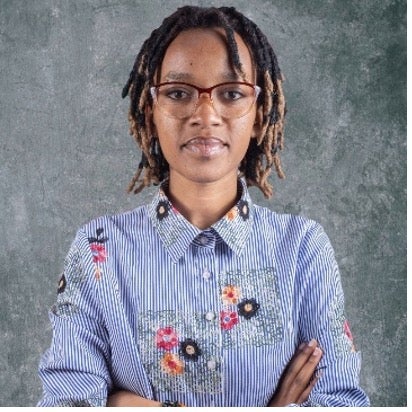In The Words Of Marie Chantal Niyonkuru : “We have the right to choose what we want to do and who we want to be, regardless of our gender”
Date:

22 year old Marie Chantal grew up in Muyange village, Rwanda. In her remote town, her closest relatives didn’t know computers existed. Nevertheless, one thing was certain: the moment Chantal opened a computer, she knew that this would be what led her to an incredible life of opportunities.
“I grew up in the countryside, where people don’t have computer literacy. I attended one of the best high schools in Rwanda after successfully completing my primary school in my town. Since I did not have any computer skills at the time, adaptation was not easy. However, I loved computers and technology and I decided to make it one of my core subjects for my final exams to graduate.
Unfortunately, school was not the only challenge. The hurdles began at home for me. My mother was skeptical when I told her I wanted to pursue computer science. Referring to my very humble background, she said “That’s for students from the cities, rich families, or boys”. She would have let my brother do it but not me. She suggested that I take a nursing program.
Even though I was hurt, I wasn’t surprised. That setback encouraged me to go for the STEM* field. Looking back, I can share that it was hard being criticized and doubted because of my gender. ICT and gender are still a male-dominated domain. This portrayal of exclusion, and male-dominated culture is not supportive of women and minorities. I wanted to break the stereotype, and let girls know that they can take up studies and careers in the ICT sector and they can fight to bridge that gender gap. I didn’t give up on my passion and I kept searching.
I was introduced to coding through the African Girls Can Code Initiative (AGCCI), a four-year project that brings together girls from all over the African continent to spark their interest in ICT as a career path and to empower them as young promising innovative women on the continent. I completed the training program in 2019. AGCCI reinforced my passion for ICT and my deep conviction that girls can pursue this area and challenge existing stereotypes. I was encouraging by higher-up women in the STEM field that not only did I deserve to be there, but I could close the gender gap in STEM and be better than I could ever imagine while doing what I love. The program was reaffirming, and instructive in coding and other important aspects to succeed in the STEM field such as communication, and leadership. After completing the program in 2019, I decided to tackle the STEM field head on and become a software developer.
After pursuing my goals in software development, I decided to go into coaching. I taught coding to more than 100 software development university graduates from Rwanda and I have given motivational speeches to more than five girls’ high schools. In my town, I opened an ICT club where I teach children basic computer skills.
UNESCO data from 2014-2016 shows that globally, female students’ enrolement is particularly low in information and communications technology (ICT), where women represent only three per cent, and natural science, mathematics, and statistics, where the figure is five per cent. Young women and girls can have a huge impact on the growth of Africa’s technology ecosystem. Fewer than 30% of the world’s scientific researchers are women: that’s just one of the statistics showing how many challenges remain for women and girls in the scientific field, as the world marks the International Day of the Girl child, on Tuesday.
More information on the AGCCI program here
* Science, technology, engineering, and mathematics (STEM)